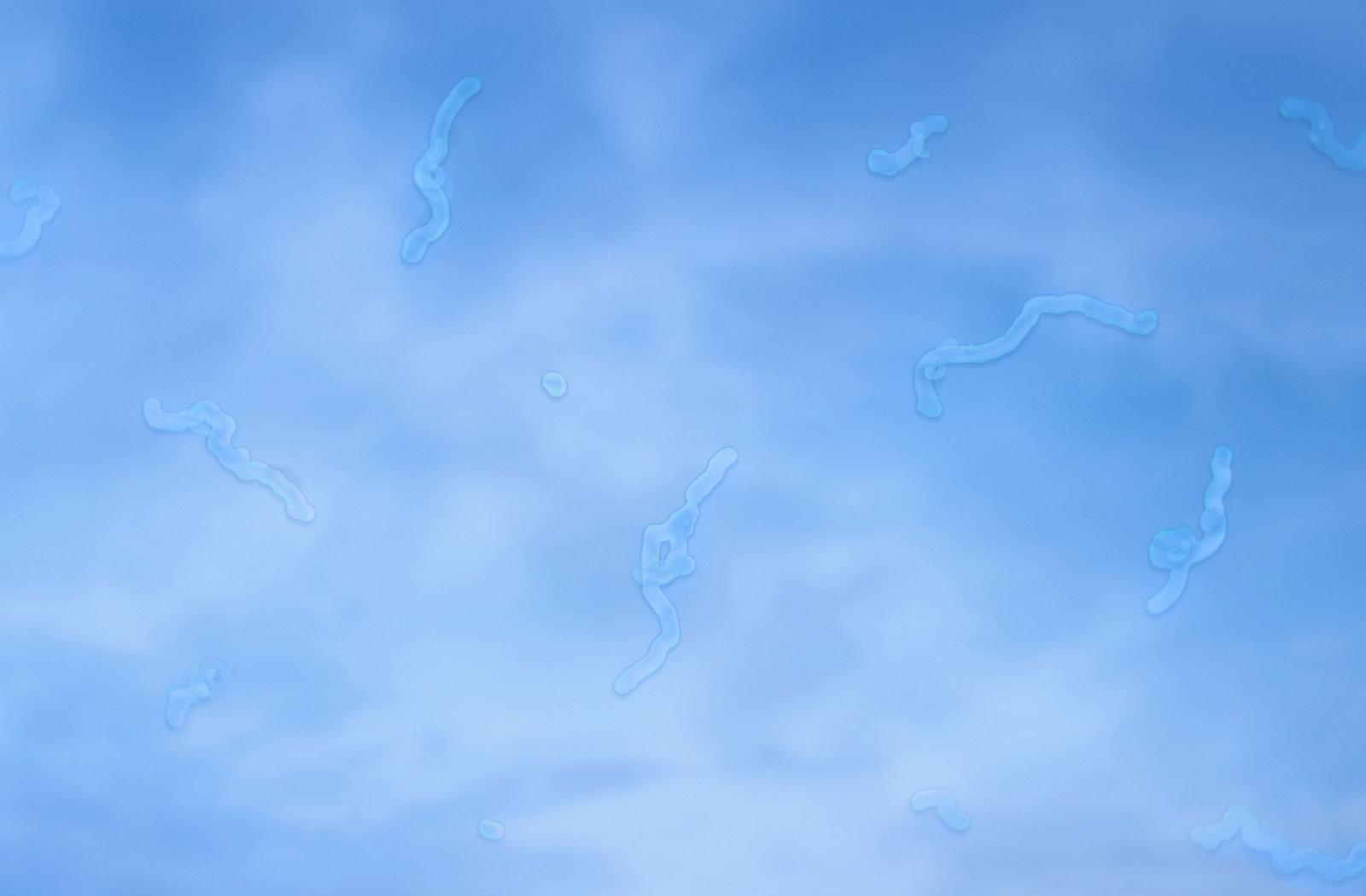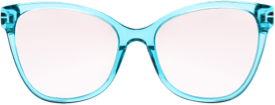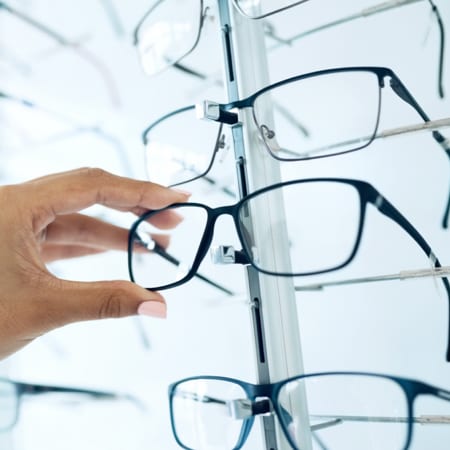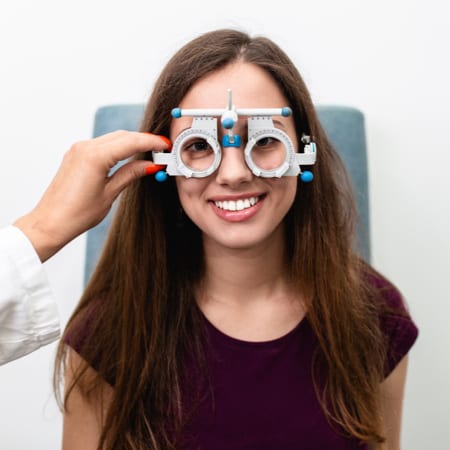Since the body is an interconnected system, it can be difficult for the untrained eye to discern whether one condition, like dry eyes, can cause another, like floaters. Both conditions are very common, and their symptoms can be bothersome, unsettling, and even disrupt your visual clarity.
Dry eyes do not cause floaters. They can, however, make visual disruptions, including floaters, appear more noticeable, giving the impression that dry eyes can lead to floaters.
That said, managing dry eyes with effective therapies can help improve overall comfort and visual clarity, making visual disruptions from floaters appear less noticeable.
A Closer Look at Floaters
Floaters are small, shadowy shapes that drift across your field of vision. They often appear as spots, threads, or squiggly lines, either gray, black, or transparent in colour. Floaters are more noticeable in bright light conditions or when you’re staring at a light-coloured backdrop, like a clear blue sky.
Floaters form when the jelly-like substance in your eye, the vitreous humour, naturally begins to change as you age. Tiny fibres may clump together, casting shadows on the retina as light passes through, leading to floating specks that drift across your vision.
Apart from aging, other factors can also contribute, such as:
- Eye injuries or surgeries (e.g., cataract removal)
- Inflammation in the eye, known as uveitis
- High myopia
- Certain systemic conditions, like diabetes
Should You Be Concerned About Floaters?
Floaters that occasionally appear and don’t interfere significantly with your vision are usually not a cause for concern.
However, if you experience a sudden increase in floaters, contact your optometrist immediately. This may be a sign of a more serious condition, such as a retinal tear or detachment, which can seriously harm your vision if you delay treatment.
The Link Between Dry Eyes & Floaters
Dry eye and floaters happen for different reasons and affect different structures of the eye (corneal surface vs. vitreous humour), but they can intersect in how they make you feel about your vision.
Dry eyes occur when your eyes don’t produce enough tears or the tears evaporate too quickly, leading to discomfort, blurry vision, and irritation. While dry eyes don’t directly cause floaters, they can make them more noticeable. Here’s why:
- Visual distractions from dry eyes often highlight floaters. When you’re struggling with eye discomfort or blurry vision, floaters may appear more prominent.
- Eye strain and fatigue are common by-products of dry eyes, which can heighten your awareness of minor visual disturbances.
Think of it this way: when your eyes are stressed, every little speck that crosses your line of sight can suddenly demand attention.
Can Dry Eye Treatment Help with Floaters?
Unless floaters seriously interfere with your day-to-day life, waiting to see if they become less visible on their own is usually the way to go. Floaters won’t completely disappear with dry eye management, but it can help make them less noticeable.
When your eyes are dry, they’re often uncomfortable, tired, and more sensitive to minor distractions. Floaters, which typically go unnoticed, can suddenly feel like they’re stealing the spotlight in your field of vision when your eyes are in distress.
When you address the underlying dryness, you’re helping your eyes feel more comfortable and less strained, so they can naturally focus better. The calmer and more hydrated your eyes are, the less likely you are to notice those pesky floaters hovering around.

Explore Professional Dry Eye Therapies
If you’ve been battling the never-ending irritation of dry eyes, it might be time to explore dry eye therapy. Solutions like artificial tears and warm compress masks can help, but tackling moderate-to-severe dry eye requires a more direct approach.
These therapies target the underlying cause of dry eyes, offering noticeable comfort and long-lasting relief from symptoms (and visual disruptions). The key is finding the right treatment that aligns with you.
Intense Pulsed Light (IPL)
IPL is amazing for addressing inflammation that often accompanies dry eyes.
This noninvasive device uses controlled pulsed light energy to target the skin surrounding the eyes, improving inflammation, irritation, and redness.
LipiFlow
LipiFlow is ideal if your dry eyes stem from meibomian gland dysfunction.
This treatment works by gently warming and massaging the glands in your eyelids, unclogging blockages, and improving the flow of oils needed to keep your tears stable and effective.
Radiofrequency (RF)
This device uses RF energy to gently warm and stimulate tiny oil-producing glands around the eyelids. This helps melt any clogs or blockages within them, restoring proper gland function for a healthier tear film.
Zocular Eyelid System Treatment (ZEST)
ZEST helps remove debris, bacteria, and oils from your eyelids. This is key because clogged oil glands can worsen dry eyes. Restoring proper gland health helps pave the way for smoother, more hydrating tear production.
Floaters: When Should You See an Optometrist?
Although dry eyes can exacerbate awareness of floaters, it’s essential to monitor floaters independently of dry eye symptoms. See an optometrist right away if you notice:
- A sudden surge in floaters
- Any flashes of light in your vision
- A shadow or curtain covering part of your vision
These could signal retinal detachment or another serious issue. Delaying treatment can permanently impair your vision. Seek immediate care to safeguard your sight.
Take Control of Your Eye Health
When your eyes are hydrated, functioning well, and free of irritation, floaters can become less noticeable, and your overall comfort and visual clarity improve. Managing dry eye symptoms allows you to focus on the things that matter—like enjoying life—rather than those little distractions floating across your vision.
If persistent dry eyes or floaters are affecting your vision or quality of life, we encourage you to book an appointment with us at Woodstock Vision Care. Together, we can create a custom treatment plan that works for you.
















